HEARING LOSS
Sensorineural Hearing Loss: Symptoms, Causes & Treatment
By Team Hearzap | June 6, 2025
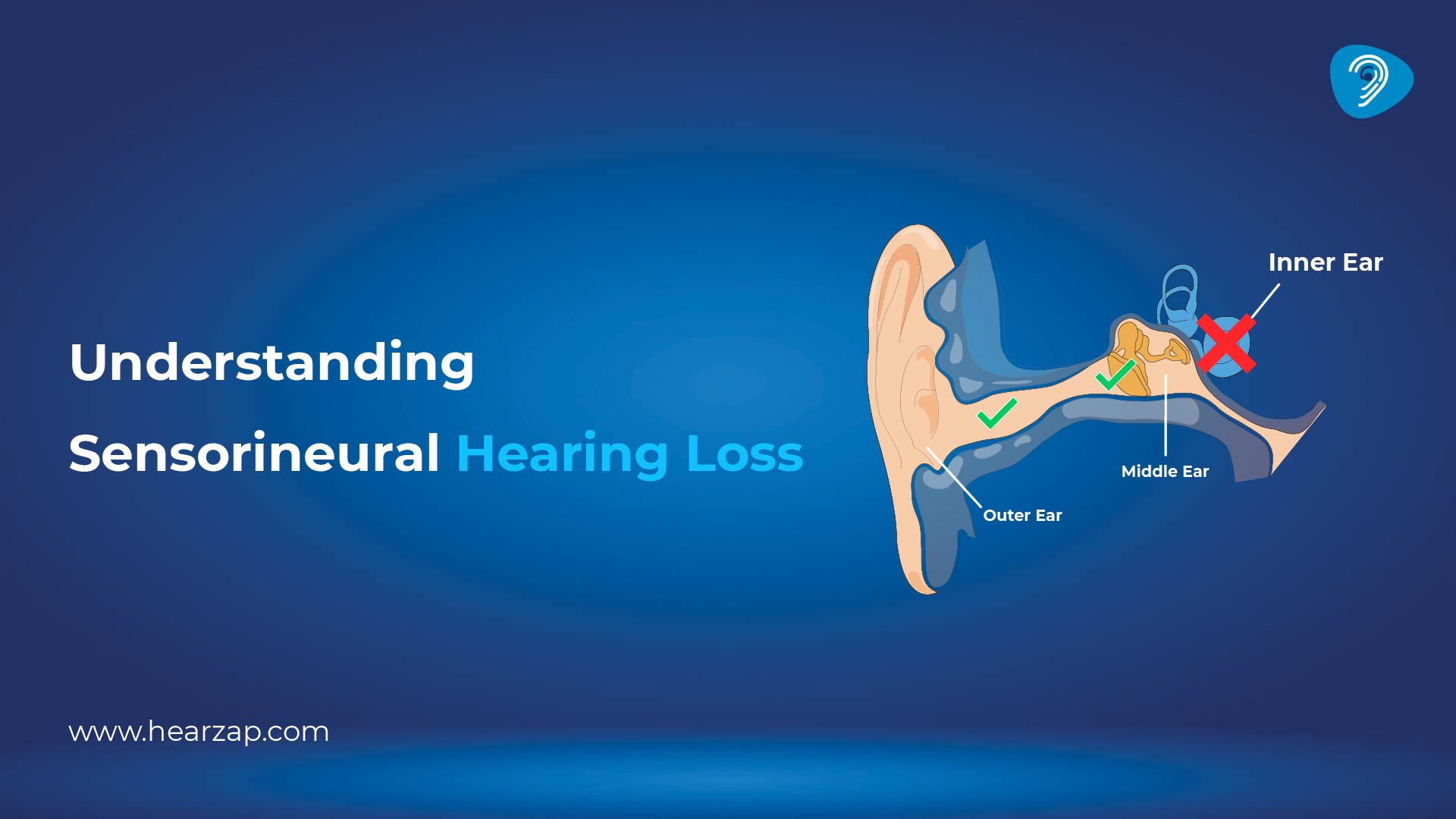
Sensorineural hearing loss tends to sneak up quietly. It doesn’t always make a dramatic entrance. But over time, you might notice voices losing their sharpness, music sounding a little flat, or conversations feeling like puzzles you have to piece together. This type of hearing loss is surprisingly common, especially as we age or spend time in noisy environments. The upside? There's help. In this blog, we’ll explore the real-world sensorineural hearing loss symptoms, what causes it, and the best sensorineural hearing loss treatment options available, whether your hearing loss is mild or more advanced. Because better hearing means a fuller life.
What Is Sensorineural Hearing Loss?
The major contributing factor for sensorineural hearing loss is one whose onset results in malformation or destruction of the inner ear (usually the cochlea) or of the auditory nerve carrying sound signals into the brain. Very soft sounds cannot be heard while loud sounds are unclear and harder to follow, thus uncomfortable to speak. Conductive hearing loss, on the other hand, is usually limited to the outer ear and middle ear, whereas sensorineural hearing loss is that one whose occurrence affects the inner ear and nerve pathways. Sensorineural hearing loss is, in most cases, permanent although management options abound.
Symptoms of Sensorineural Hearing Loss
The symptoms express themselves on various levels from less conspicuous to more obvious. The following are some common symptoms of sensorineural hearing loss:
- Sounds, mainly speech, seem muffled or distorted
- Having difficulties following speech in noisy environments
- Asking others to repeat more often
- Inability to hear high pitched sounds (such as those from birds or children's voices)
- Vague instances of dizziness or disorientation
- Ringings in the ears (tinnitus)
Usually, changes tend to be gradual and unnoticed. If you find yourself disregarding phone calls or avoiding social events because you are unable to take part in conversations, it may be time to have an assessment.
What Causes Sensorineural Hearing Loss
Sensoineural Hearing Loss is caused by multiple factors that can contribute to this sort of hearing loss. The most common causes for sensorineural hearing loss include:
- Ageing (Presbycusis)
It is the most common cause. Hair cells in the inner ear gradually wear out over time.
2. Noise Exposure
Constant exposure to loud environmental noise materials such as high decibel concerts, instrumentation, traffic sound, etc, would lead to sensorineural hearing loss.
How to Treat Sensorineural Hearing Loss
Most cases are permanent, but that doesn’t mean you have to live in silence. There are great sensorineural hearing loss treatment options to help you hear better:
- Hearing Aids
The most common solution. Today’s hearing aids are smart, discreet, and tailored to your hearing profile. They make speech clearer and cut out background noise. - Cochlear Implants
For more severe cases where hearing aids don't help, cochlear implants can make a huge difference. They work by bypassing the damaged part of your inner ear. - Assistive Listening Devices (ALDs)
Great for specific situations, like watching TV, attending lectures, or phone calls. - Therapy and Support
Lip reading classes, speech therapy, or audiological rehabilitation can help you adjust and communicate better.
Mild Sensorineural Hearing Loss
Even mild sensorineural hearing loss can change how you experience the world. You might miss jokes, mishear instructions, or feel left out. But early diagnosis changes everything. With the right hearing aids and support, you can stay social, confident, and connected.
When to See a Specialist
If any of these sensorineural hearing loss symptoms feel familiar, don’t wait. A hearing care specialist can run a test, walk you through your audiometry report, and explain your next steps.
Final Thoughts
Sensorineural hearing loss doesn’t have to limit your life. Whether it’s due to age, noise, or health reasons, there are proven ways to manage it. With today’s hearing aids and expert support, you can stay close to every conversation, every laugh, and every moment that matters.
Related Blogs

How Hearing Loss Affects Daily Life
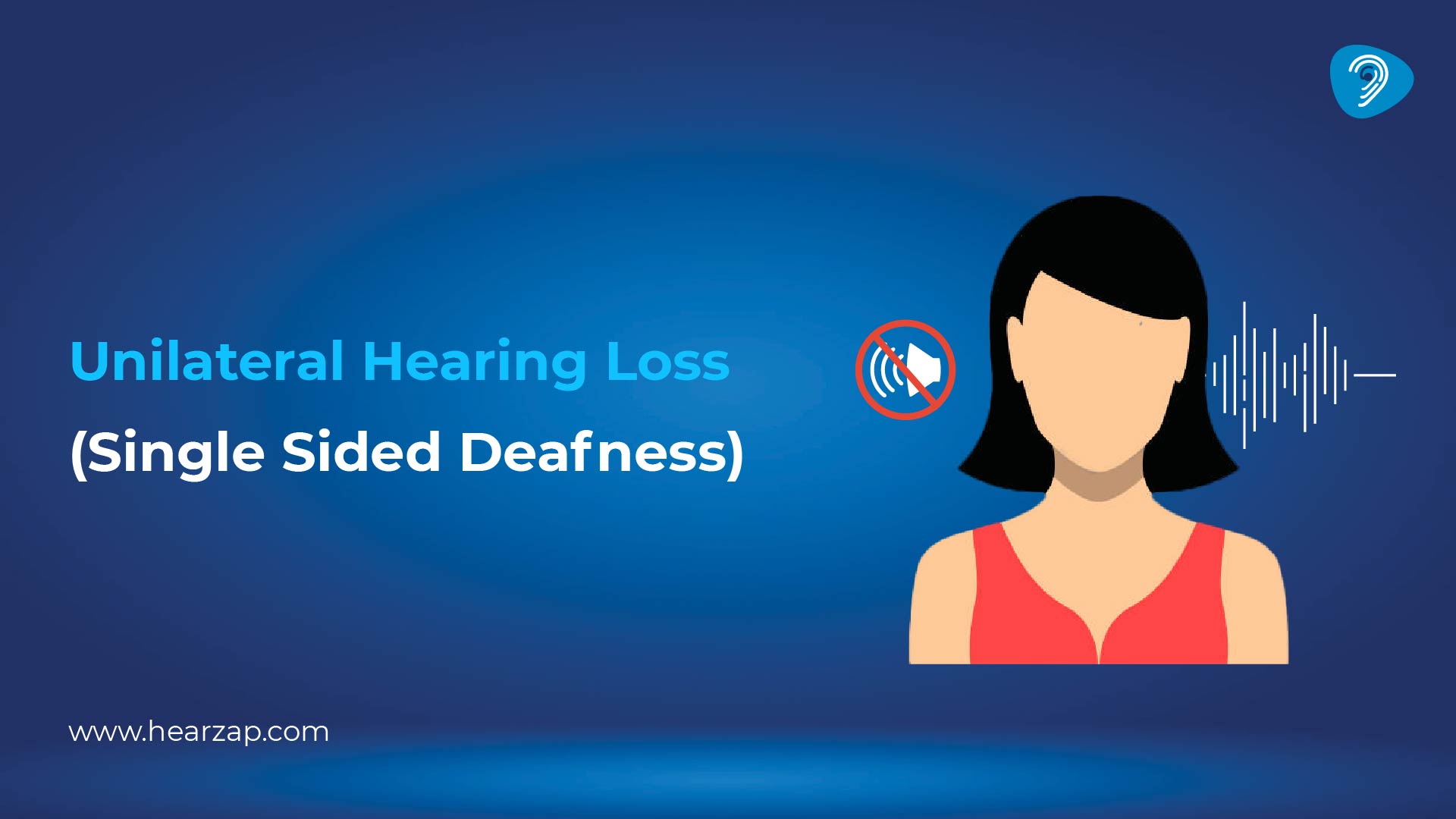
Unilateral Hearing Loss (Single-Sided Deafness)

Noise-Induced Hearing Loss: What You Should Know About
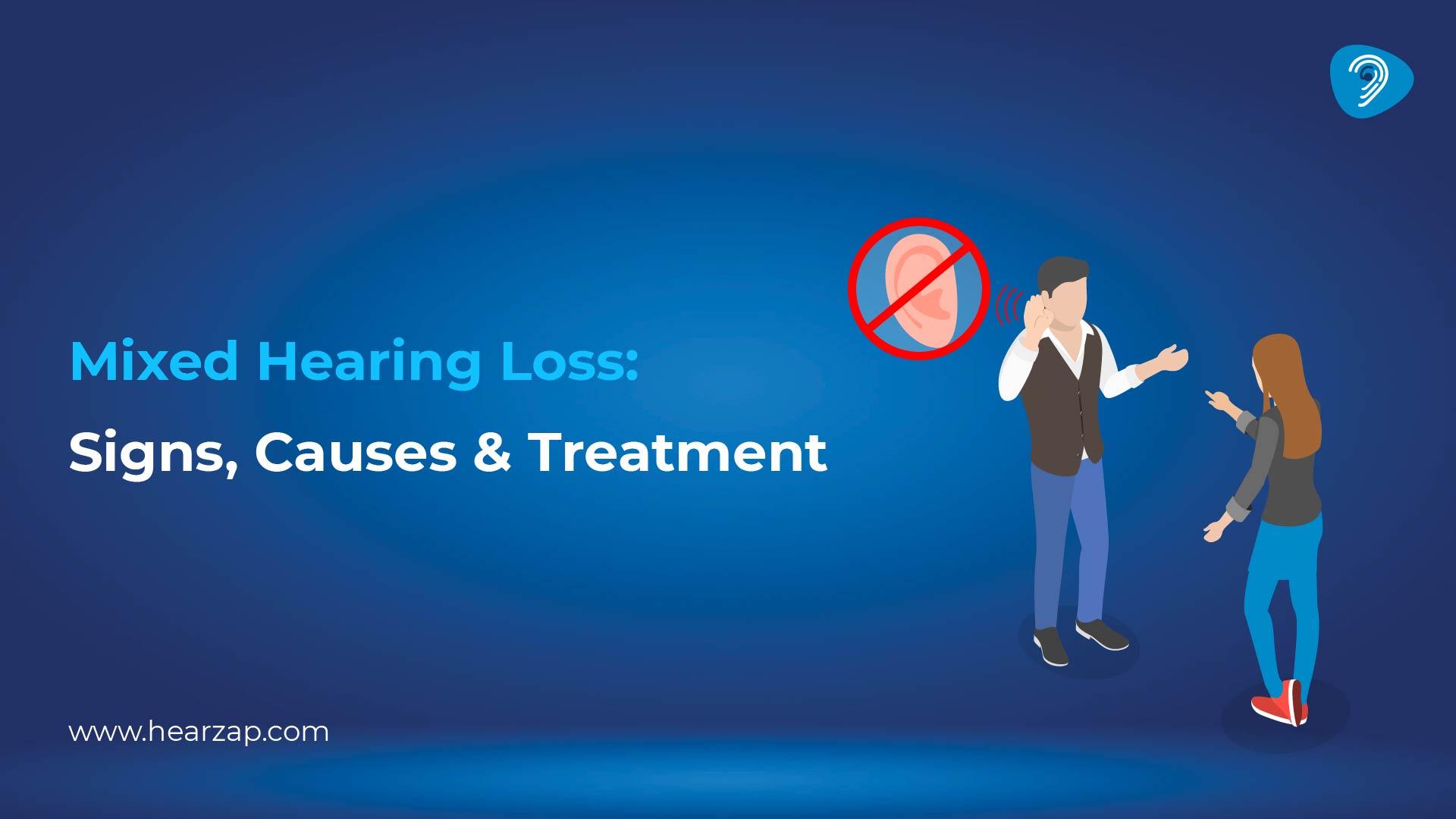
Mixed Hearing Loss: Signs, Causes & Treatment
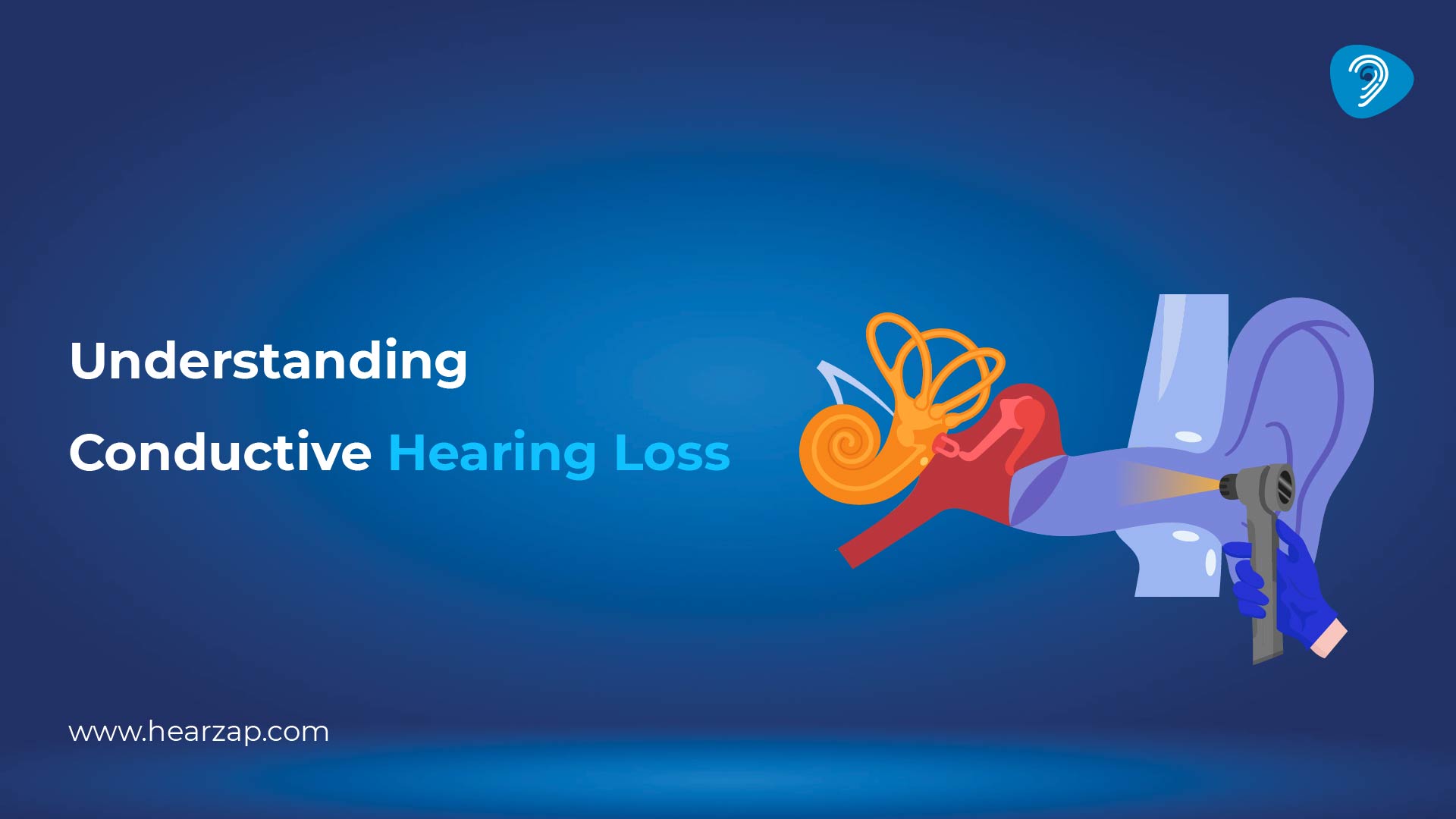
Conductive Hearing Loss: Symptoms, Diagnosis & Treatments
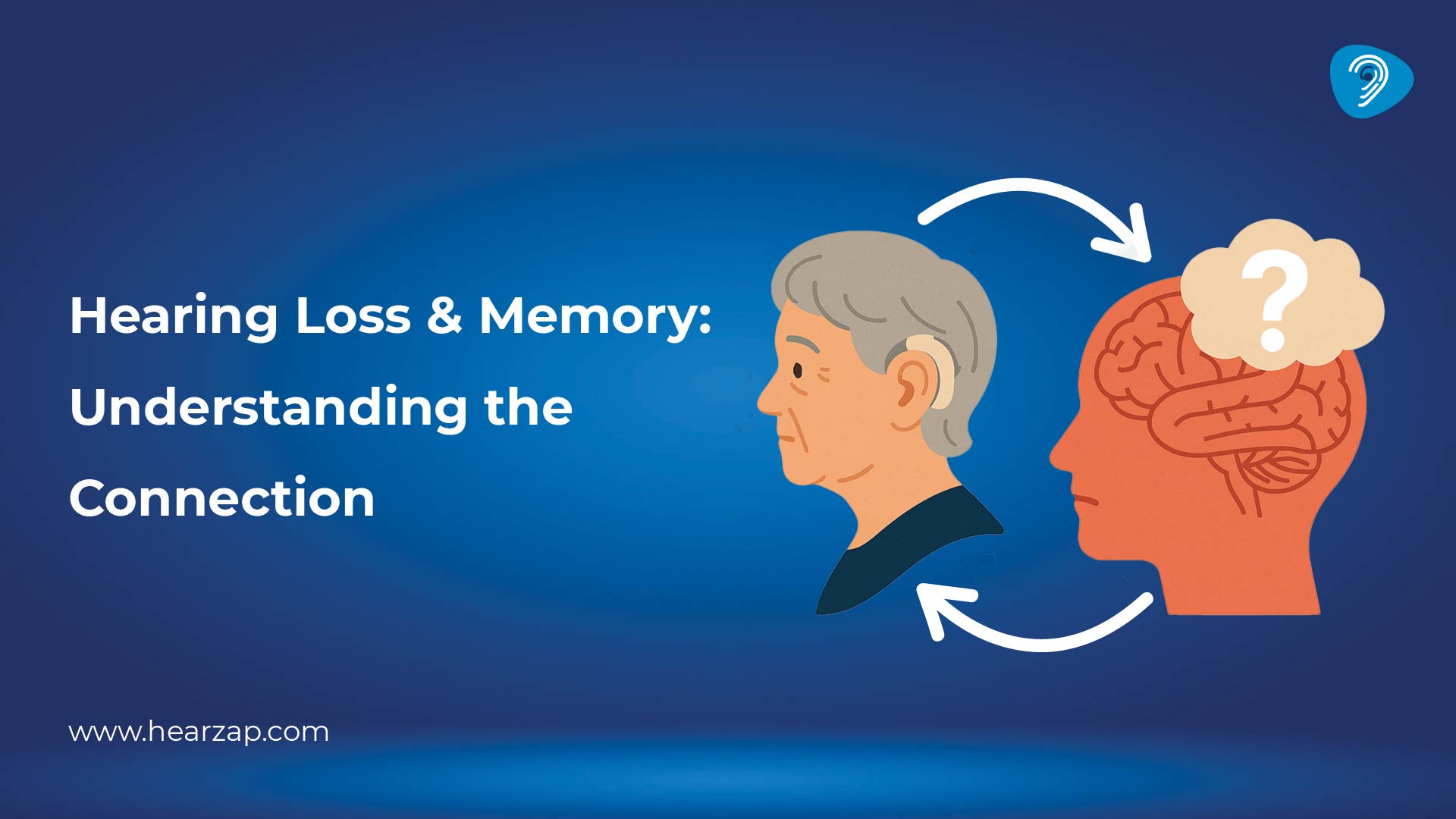
Hearing Loss & Memory: Understanding the Connection
Contact us
We are here for all your hearing needs, from hearing tests to hearing aids. Fill out the form below, and we will give you a call soon.
Please enter a valid mobile number with 10 digits.
Recent Blogs
By None | Jan. 22, 2026
By None | Jan. 20, 2026
By None | Jan. 12, 2026
By None | Jan. 6, 2026
By None | Jan. 5, 2026









